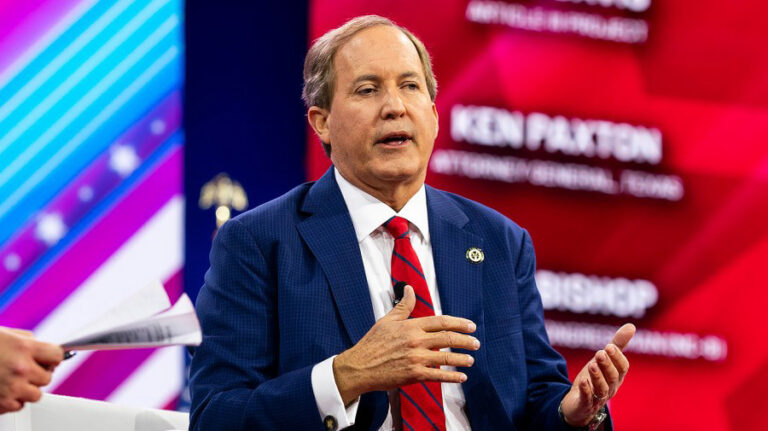New UK Law Targets Child Sexual Abuse with Tougher Sentences
Tougher Sentences for Child Sexual Abuse in the UK: A New Law in Focus
In an age where safeguarding our most vulnerable is more important than ever, the UK government has introduced a new law aimed precisely at protecting children from sexual abuse. This development has generated a whirlwind of discussions across media platforms, social circles, and among policymakers. But what does this all mean? Let’s unpack this new legislation and explore its implications, aim, and the pressing need for such measures.
What’s the Motivation Behind the New Law?
Imagine a world where the innocence of children is shielded from the dark elements that lurk in society. Unfortunately, that world feels far from reality. Cases of child sexual abuse have been on the rise, creating an unsettling feeling among communities. The motivation driving this law is crystal clear: it’s about drawing a line in the sand and saying, “Enough is enough!”
This law is more than just a legal text; it’s a response to intense public outcry and research findings that underline the severe and often lasting impact of sexual abuse on children. Recent studies reveal that the long-term psychological effects can ripple through a victim’s life, harming their relationships, education, and mental health. So, when the UK government takes action, it feels like a beacon of hope for many.
Key Points of the New Legislation
Okay, let’s dive into the nitty-gritty of this new law. What are the key features that set it apart? Here we go:
- Increased Penalties: The heart of this new legislation is its commitment to tougher sentences for those convicted of child sexual abuse. This means judges will now have less leeway in giving lighter sentences, ensuring that the penalties reflect the gravity of the crime.
- Mandatory Sentences for Repeat Offenders: It’s not merely about punishing the first-time perpetrators; the law doubles down on habitual offenders. Repeat offenders face stricter sentences, which should serve as a deterrent, nagging at the conscience and instincts of potential criminals.
- Focus on Victims: There’s an essential shift towards ensuring that victim support systems are strong. This law isn’t just punitive; it prioritizes the healing and well-being of the victims, recognizing their trauma and giving them a voice in the justice process.
- Stronger Reporting Mechanisms: It’s important to break the cycle of abuse, and this law encourages reporting through public awareness campaigns. The idea is that adults who notice signs of abuse are empowered to come forward without fear or hesitation.
The Impact of the New Law
Now, let’s chaotically unpack what this all means for society, particularly for kids. It’s not only about punishing wrongdoers but also about creating an environment where children feel safe. Let’s break it down:
Boosting Community Confidence
When the community sees that the government takes the issue of child sexual abuse seriously, there’s a ripple effect. People feel more confident in their protection systems, thereby fostering an environment where they are encouraged to speak out. If individuals believe action will be taken, the chances of abusers being reported increase, and that’s a massive win for everyone.
Deterrence Effect
The hope is that with such stringent penalties, potential offenders will think twice before engaging in predatory behaviors. It’s a psychological game – if the consequences are steep enough, it might just sway someone from acting on their dark impulses.
Rehabilitation Programs
While the law focuses on harsher penalties, it also recognizes the importance of creating rehabilitation programs for offenders. The goal is to prevent recidivism. After all, if someone can receive support and treatment, they may never go down that dark path again. It’s about breaking cycles, not just punishing the person.
The Role of Technology
With the advent of technology, new challenges come into play. Children are more connected than ever, which provides predators with new platforms to exploit. The law acknowledges this and is designed to tackle online abuse, too. Here’s how:
- Monitoring and Reporting: The legislation encourages tech platforms to monitor content proactively, ensuring that harmful material is flagged and removed swiftly.
- Empowering Parents: By educating parents about potential online threats and ways to safeguard their children, the law seeks to create a protective barrier against digital exploitation.
The Controversies Surrounding the Law
Of course, no law is without its critics. Some argue that increasing penalties does not address the root causes of sexual abuse. They suggest that much more is needed, including education, better mental health services, and community programs aimed at preventing abuse before it occurs.
The Debate on Rehabilitation
There’s a fine line between punishment and rehabilitation. Some worry that harsher penalties could deter offenders from seeking help, pushing them into hiding rather than addressing their behaviors. The conversation here is complex and requires careful navigation to balance justice for victims with opportunities for change for offenders.
Concerns Over Enforcement
Critics also express concern about the enforcement of the new rules. More laws mean more responsibilities for law enforcement agencies, which may already be stretched thin. There’s a worry that, despite the good intentions behind this legislation, it may end up being less effective unless there’s a robust mechanism in place for enforcement and support.
Conclusion
The introduction of tougher sentences for child sexual abuse in the UK marks a pivotal moment in the ongoing struggle against this heinous crime. It reflects a growing recognition that protecting children is not just a societal duty but a moral one. While challenges remain, the focus on slapping down heavy penalties, coupled with victim-centered approaches, signifies a shift towards a safer future for our children.
In answering the question of whether this law will be effective, only time will reveal the true impacts. However, one thing is clear: society is taking a stand, and that’s a step in the right direction.
FAQs
1. What prompted the new law on child sexual abuse in the UK?
The increase in child sexual abuse cases and public outcry for tougher measures led the UK government to introduce this legislation.
2. How does the new law impact repeat offenders?
Repeat offenders will face mandatory longer sentences, aimed at deterring habitual abuse.
3. Are there provisions for victims in the new law?
Yes, the legislation places a strong emphasis on victim support, ensuring they have resources for healing and a voice in the judicial process.
4. How does this law address online abuse?
The law encourages tech companies to actively monitor harmful content and empowers parents through education on potential online threats.
5. What are some criticisms of the new law?
Critics argue that harsher penalties alone won’t solve the problem, and there’s a need for more comprehensive measures like prevention programs and better mental health services.







